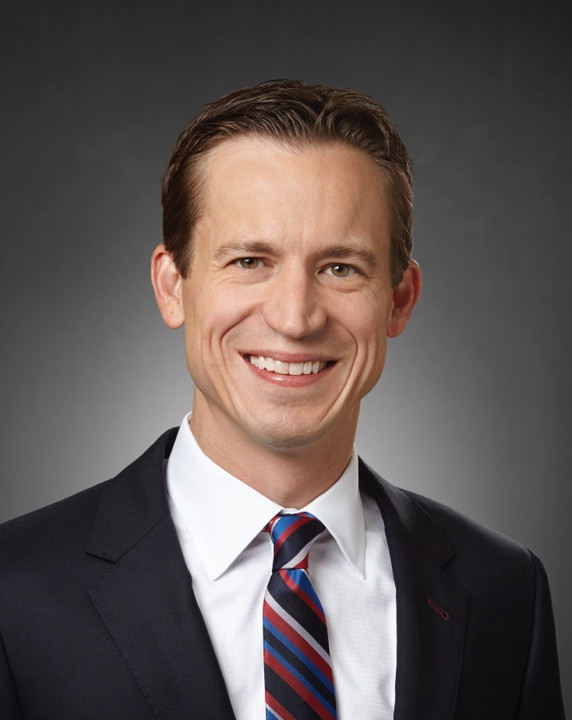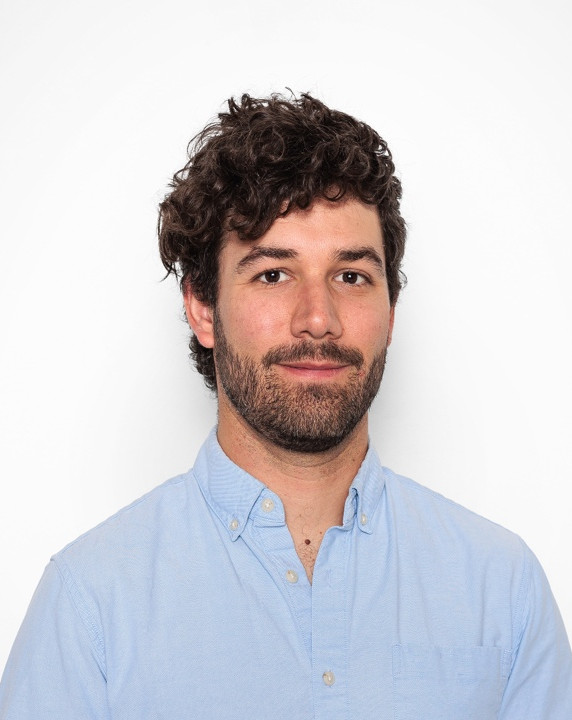RamaOnHealthcare April 12, 2024
Humans, Technology, and AI in Healthcare Today
Today, RamaOnHealthcare welcomes two guests to share with us the challenges and potential at the rapidly changing intersection of humans, technology, and AI, in healthcare today.

Dr. Marcus Romanello, MD, MBA, Chief Medical Officer, Kettering Health Hamilton Hospital

Eli Ben-Joseph, Co-Founder and CEO, Regard
Dr. Marcus Romanello, MD, MBA, is the Chief Medical Officer for Kettering Health Hamilton Hospital, overseeing clinical quality and medical operations for the past 10 years. He has particular interest in technology and AI.
Eli Ben-Joseph is the co-founder and CEO of Regard, the leading AI clinical platform. The concept for Regard was born out of Stanford while Eli was a graduate student, alongside his co-founders Nate Wilson and Thomas Moulia.
RamaOnHealthcare (ROH): Tell us a little bit about your background and what inspired you to start Regard?
Eli Ben-Joseph (EBJ): My grandfather was a physician, and he loved his job, so growing up I always wanted to be a doctor. I was on the pre-med track and had the opportunity to shadow a physician in a hospital setting. It became very clear to me that a job people once loved was now overburdened by administrative duties and endless documentation. This left little room for doctors to spend time doing what they set out to do – take care of people. After several conversations with physicians, a lightbulb went off in my head. I realized they were facing a massive data overload problem. I knew there had to be a way to help doctors make sense of an ocean of data that informed patient care and let them get back to the work they love. Doctors become doctors to heal. We are helping them reconnect with that passion.
ROH: Can you explain a more about why this data overload is such a big burden for physicians, and the implications it has on them as well as the hospital/health system?
EBJ: The sheer volume of data in EHRs is overwhelming. By some estimates, as many as 900,000 data points on a critical care bed go unused! That is per patient, per hour! This impedes the physicians’ ability to diagnose, treat, and document properly. There is just too much to use. It is also holding hospitals back from being able to capture revenue for the care they provide.
The sheer volume of data in EHRs is overwhelming.
Additionally, physicians spend over 35% of their time documenting patient data, reducing their ability to provide high-quality patient care. Doctors need the right diagnostic information handy and in real-time to properly assess and treat their patients. However, often that critical information is buried in the electronic health record (EHR) and even the most skilled, experienced, and knowledgeable doctors don’t have the time or bandwidth to dig in and find what they need.
Doctors need the right diagnostic information handy and in real-time….
ROH: Can you share more about Kettering Health’s mission and what compelled you to start working with Regard? (Dr. Romanello)
Dr. Marcus Romanello (MR): Kettering Health was founded on a long history of innovation by its namesake, engineer, and inventor Charles F. Kettering. We are always seeking solutions for problems vexing the healthcare industry. Our partnership with Regard accelerates our ability to care for patients in a safer and more efficient manner.
ROH: What are some of the biggest pain points you see clinicians facing today and how are you working with health systems such as Kettering Health to address them?
EBJ: Clinicians, particularly Hospitalists are often meeting patients for the first time. They need to understand the patient and their needs quickly, without having to search through the EHR for critical data.
Doctors need support making accurate diagnoses, and quickly accessing essential information that might otherwise be missed, such as medication, past procedures, test results, and disease capture.
Regard’s AI-powered technology helps solve one of the biggest problems within health systems like Kettering: the constant balancing act for physicians to find the time to treat their patients and simultaneously complete necessary administrative tasks. Here are some examples:
…the constant balancing act for physicians to find the time to treat their patients and simultaneously complete necessary administrative tasks.
Improved Diagnosing – Regard drives patient safety by reviewing all data to ensure vital diagnoses don’t get overlooked or spotted too late like sepsis, atrial fibrillation, acute kidney injury, or chronic conditions.
Improved Care Transitions — Regard’s technology ensures continuity during handoffs, providing clinicians with all the relevant details needed to get up-to-speed quickly.
Medication Safety – Regard ensures medications are accurate, preventing mistakes like accidentally discontinued meds or double-dosing.
ROH: What are some of the biggest challenges you’ve faced concerning patient care and what are some ways in which you have seen Regard’s technology work to solve these challenges?
MR: The volume of searchable information contained within a single patient’s electronic health record has increased at a rate now frequently exceeding the temporal constraints of the bedside clinician. Regard seamlessly and unobtrusively collects the most salient information, increasing patient safety, enhancing documentation, and offloading the physician by a significant factor.
ROH: I saw you recently hit 2 million patient diagnoses since your launch. Can you give a little more color to the significance of this, and how exactly Regard’s technology works to catch the diagnoses?
EBJ: This recent milestone was a huge step forward in advancing our mission to ensure every patient gets world-class care, while also providing clinicians with tools that empower them to deliver the best care possible. It highlights the technology’s ability to not only streamline EHR navigation but also go beyond the clerical to identify potential diagnoses physicians might otherwise miss.
Health systems utilizing Regard’s technology saw a 14 percent average increase in comorbidities (CC) and major comorbidities (MCC) capture. By identifying and flagging these secondary diagnoses, Regard’s technology ensures hospitals have a full picture of a patient’s health and can help busy care teams catch potential safety issues.
ROH: What are you looking to accomplish with Regard in the future?
MR: The most effective business partnerships are ones where both organizations grow together, meeting new challenges cooperatively. Kettering Health will continue to provide feedback and be fertile ground as Regard innovates and expands. As our informaticists analyze the AI’s effects on clinical care, we will certainly find new questions and new solutions.
ROH: How does Kettering train its staff to use Regard’s AI? What feedback have you received from clinicians, other staff as the technology has helped improve process, outcomes, and activity?
MR: The first step is, of course, awareness of the benefit, accomplished via demonstrations, testimonials, and computational analysis. We then ensure meaningful adoption via “at the elbow” support. We are keen to receive physician feedback on what works and what doesn’t. Finally, when a product is exceptional, every user becomes an evangelical advocate.
…when a product is exceptional, every user becomes an evangelical advocate.
ROH: In your opinion, how do each of you see the role of AI in healthcare, specifically health systems, changing over the next few years? (Eli + Dr. Romanello)
EBJ: Over the next few years, we expect to see how AI empowers clinicians and integrates into clinical workflows like diagnosing, charting, and building care plans for patients. We should be heading toward a more personalized model of healthcare and AI can help us get there. There’s enough data that with AI-enabled systems, we can make care less like an assembly line and more tailored toward individuals and their needs. AI should be removing barriers for both providers and patients to make sense of health data and turning that data into insights.
AI should be removing barriers for both providers and patients to make sense of health data and turning that data into insights.
MR: In the short term, AI will augment the capabilities of our health system, for example enhancing the precision of diagnosis, making hospitals even safer, reducing the potential for errors, and increasing capacity to care for more people. On the slightly longer time horizon, AI will become so ubiquitous in our lives as to be invisible. When knowledge is no longer held in concentrated pools but flows like water all around us, we’ll unlock the real revolution in healthcare.
When knowledge is no longer held in concentrated pools but flows like water all around us, we’ll unlock the real revolution in healthcare.
More about Dr. Romanello
Dr. Romanello is also a practicing emergency physician, having completed his residency at University of Alabama Birmingham, his medical degree at University of Cincinnati College of Medicine and his master’s at University of Massachusetts Amherst. He and his wife, Shawntae, a psychiatric nurse practitioner, enjoy raising sheep and running the trails on their farm outside of Hamilton with their four boys.
More about Eli Ben-Joseph (Regard)
Eli received his Bachelor of Science in bioengineering and biology from MIT and a Master of Science in computer science and management from Stanford University. Prior to Regard, he worked at the MIT Media Lab on special projects.





